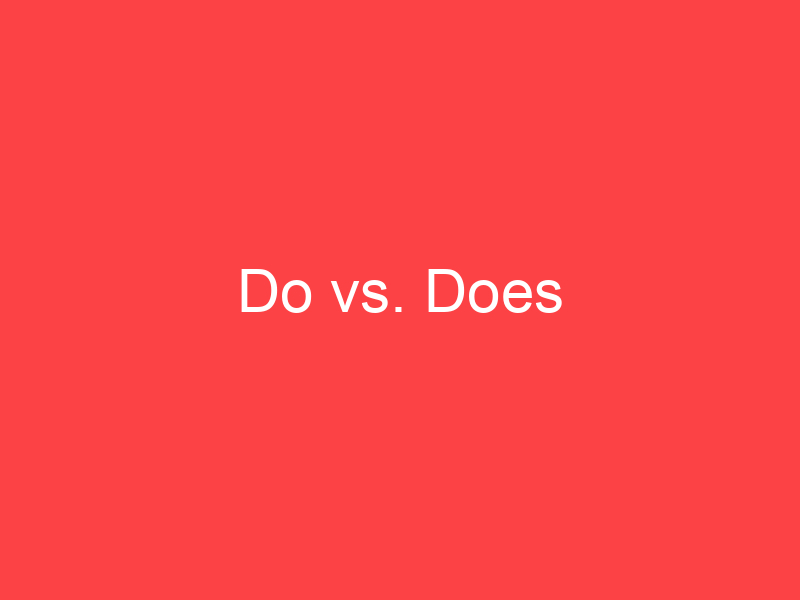-
Do (verb)
A syntactic marker
-
Do (verb)
A syntactic marker in a question whose main verb is not another auxiliary verb or be.
“Do you go there often?”
-
Do (verb)
A syntactic marker in negations with the indicative and imperative moods.
“I do not go there often.”
“Do not listen to him.”
-
Do (verb)
A syntactic marker for emphasis with the indicative, imperative, and subjunctive moods.
“But I do go sometimes.”
“Do tell us.”
“It is important that he do come see me.”
-
Do (verb)
A syntactic marker that refers back to an earlier verb and allows the speaker to avoid repeating the verb; not generally used with auxiliaries such as “be”.
“I play tennis; she does too.”
-
Do (verb)
To perform; to execute.
“all you ever do is surf the Internet;”
“what will you do this afternoon?”
-
Do (verb)
To cause, make (someone) (do something).
-
Do (verb)
To suffice.
“it’s not the best broom, but it will have to do;”
“this will do me, thanks.”
-
Do (verb)
To be reasonable or acceptable.
“It simply will not do to have dozens of children running around such a quiet event.”
-
Do (verb)
To have (as an effect).
“The fresh air did him some good.”
-
Do (verb)
To fare; to succeed or fail.
“Our relationship isn’t doing very well;”
“how do you do?”
-
Do (verb)
To have as one’s job.
“What does Bob do? — He’s a plumber.”
-
Do (verb)
To perform the tasks or actions associated with (something)
“”Don’t forget to do your report” means something quite different depending on whether you’re a student or a programmer.”
-
Do (verb)
To cook.
“I’ll just do some eggs.”
-
Do (verb)
To travel in, to tour, to make a circuit of.
“Let’s do New York also.”
-
Do (verb)
To treat in a certain way.
-
Do (verb)
To work for or on, by way of caring for, looking after, preparing, cleaning, keeping in order, etc.
-
Do (verb)
To act or behave in a certain manner; to conduct oneself.
-
Do (verb)
(see also do time) To spend (time) in jail.
“I did five years for armed robbery.”
-
Do (verb)
To impersonate or depict.
“They really laughed when he did Clinton, with a perfect accent and a leer.”
-
Do (verb)
To kill.
-
Do (verb)
To deal with for good and all; to finish up; to undo; to ruin; to do for.
-
Do (verb)
To punish for a misdemeanor.
“He got done for speeding.”
“Teacher’ll do you for that!”
-
Do (verb)
To have sex with. (See also do it)
-
Do (verb)
To cheat or swindle.
“That guy just did me out of two hundred bucks!”
-
Do (verb)
To convert into a certain form; especially, to translate.
“the novel has just been done into English;”
“I’m going to do this play into a movie”
-
Do (verb)
To finish.
“Aren’t you done yet?”
-
Do (verb)
To work as a domestic servant (with for).
-
Do (verb)
Used to form the present progressive of verbs.
-
Do (verb)
To cash or to advance money for, as a bill or note.
-
Do (verb)
To make or provide.
“Do they do haircuts there?”
“Could you do me a burger with mayonnaise instead of ketchup?”
-
Do (verb)
To injure (one’s own body part).
-
Do (verb)
To take drugs.
“I do cocaine.”
-
Do (verb)
to have a purpose or reason
“What’s that car doing in our swimming pool?”
-
Do (noun)
A party, celebration, social function.
“We’re having a bit of a do on Saturday to celebrate my birthday.”
-
Do (noun)
A hairdo.
“Nice do!”
-
Do (noun)
Something that can or should be done (usually in the phrase dos and don’ts).
-
Do (noun)
A deed; an act.
-
Do (noun)
Ado; bustle; stir; to-do; A period of confusion or argument.
-
Do (noun)
A cheat; a swindler.
-
Do (noun)
An act of swindling; a fraud or deception.
-
Do (noun)
A syllable used in solfège to represent the first and eighth tonic of a major scale.
-
Do (adverb)
abbreviation of ditto
-
Does (noun)
plural of doe

